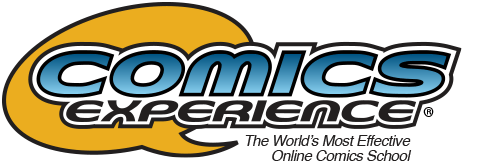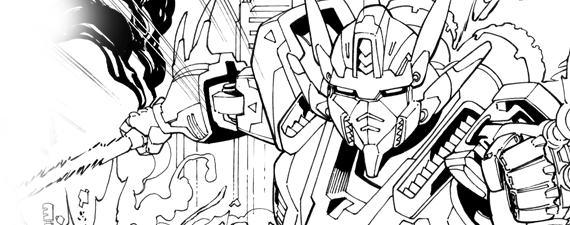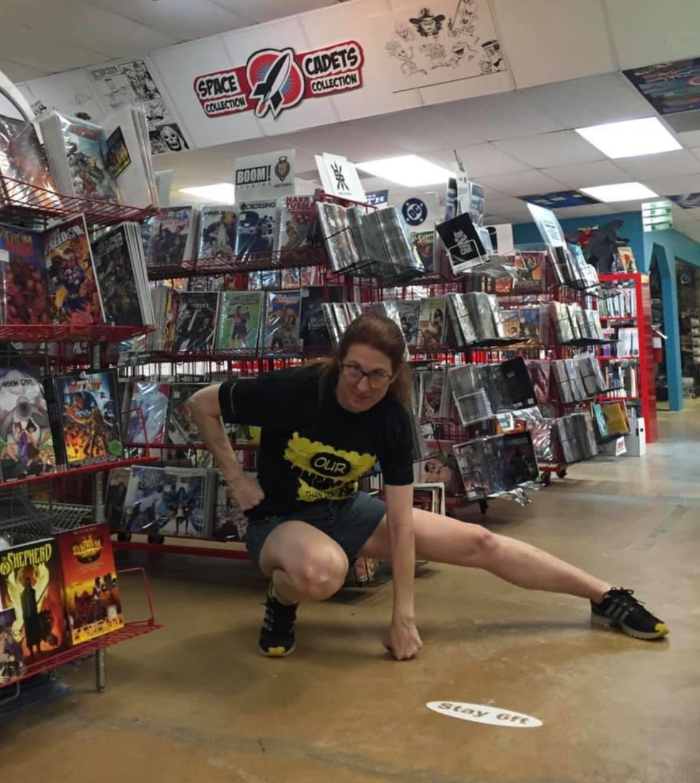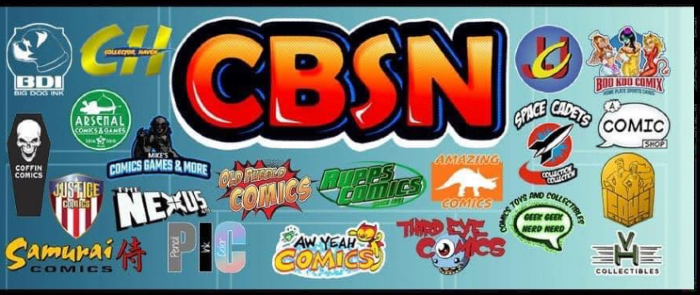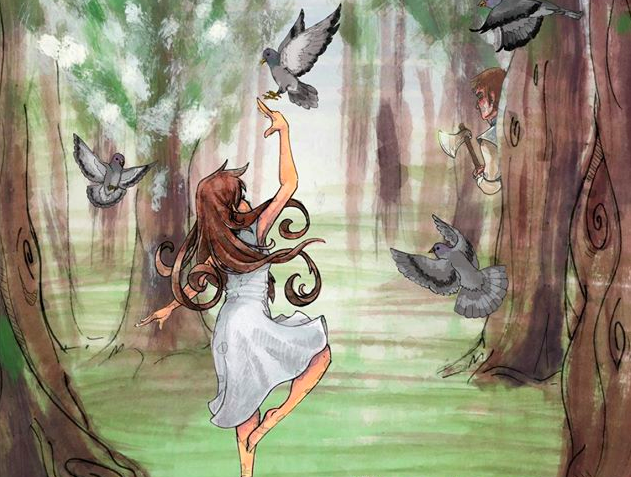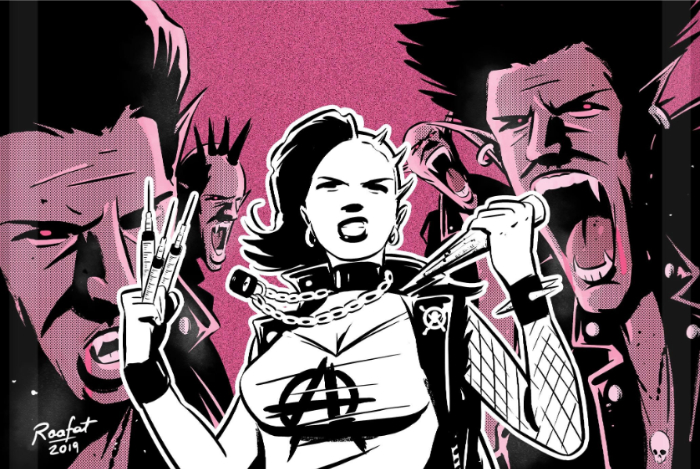
Discussions regarding diversity and inclusion initiatives in the workplace and in creative sectors have picked up again lately, largely in response to Black Lives Matter’s efforts to publicize the lack of opportunities and pay parity for people of color in the business world.
Comics is no different.
“Diversity” and “inclusion” don’t function like slow cookers. Companies and creators can’t throw buzzwords into the pot and then step away. These are active principles, involving listening instead of talking, a commitment to constantly learning, and making sustainable changes when faced with criticism from marginalized demographics. For creators and editors wishing to live and work with diversity as a given rather than “set it and forget it” mindset, a trio of databases created and maintained by cartoonist MariNaomi (Turning Japanese, Kiss and Tell: A Romantic Résumé, Ages 0 to 22, Ask Bi Girls podcast) make for a valuable first step when finding the right fits for the right projects and providing opportunities for creators underrepresented in the comics scene.
The three resources: Cartoonists of Color Database, Disabled Cartoonists Database, and Queer Cartoonists Database (all funded via MariNaomi’s Patreon), contain a staggering array of talent, and includes pencillers, inkers, letterers, colorists, designers, and cartoonists. It’s even possible to find creatives by cross-referencing databases! No matter the genre or style needed for a project, there likely exists a potential partner to reach out to and inquire about their interest.
However, there are right ways and wrong ways to communicate with cartoonists from marginalized backgrounds and thoughtfully engaging with their work. Respect must form the foundation of any collaborative effort. Respect does not begin and end simply with proffering opportunities. MariNaomi took time to talk about the databases with us and how individual creatives and publishers alike can back up their words with actionables.
Comics Experience: What are some of your favorite creator stories from each database? What amazing works have come from creators using them and finding their dream collaborators?
MariNaomi: When I’m traveling–at conventions or on book tours–I’ve had a lot of young creators come up to me and tell me that they got their first art show, their first paying gig, etc., from the databases. In interviews and on social media, I’ve seen pros say they get gigs from the databases all the time. Editors, organizers, and other gatekeepers often tell me they use my databases to find people for panels, anthologies, magazines, etc. I’ve seen social media posts from bookstore owners saying they use the databases to diversify the work they carry.
Hearsay is about all I’ve got. When folks tell me these things in person, I’m usually in the middle of an event and don’t have time to ask questions. Also, I get emotionally overwhelmed with such happy news, and I get mad at myself later for not asking for details. Of course I’d love to know specifics, but it seems like a lot of investigative work just to make myself feel good. I’m just happy the databases seem to be working.
CE: Multiple Black creators have shared that they’re receiving bulk emails from artistic directors, writers, and editors, sometimes even requesting styles, genres, and art that isn’t even in their portfolio. This is obviously a rude and tokenizing approach. What would be a more respectful way for creators looking to diversify their teams to make inquiries?
MN: First off, I want to make it clear that none of those mass emails were done through my databases! The databases have been designed to safeguard against that kind of spamming. Creators have the option to allow themselves to be contacted, but in those cases, the people contacting them will not be given their email address—only if the creator responds will the emailer see their address. I’ve gotten lots of requests from folks asking to mass-email my creators, and it’s always a firm no. I care a lot about privacy.
That said, these folks should treat the creators with the same professionalism and respect that they would want. I hear complaints all the time from agents and editors who get inappropriate queries from authors who haven’t read their submission guidelines, for example. If you’re reaching out to a creator, you should do your research. Explain why you think they, specifically, would be perfect for your project. A little bit of courtesy goes a long way.
CE: How should publishers and indie creators diversify their teams without tokenizing or otherwise sidelining the contributions of their BIPOC, disabled, and/or LGBTQIAP+ collaborators?
MN: I don’t think it’s my place to answer this question—I don’t have the answers other than they need to balance the scales throughout their organizations. Don’t just decide to hire marginalized creators–hire marginalized folks to BE the decision makers. As a marginalized creator myself, I’ve found myself tokenized many times over the years, and it sucks. You always know when you’re there to make somebody else look good.
CE: Too often, publishers treat diversity and inclusion with lip service, touting both for marketing purposes but not promoting or recruiting BIPOC, disabled, and/or LGBTQIAP+ people as leaders. What’s the most effective way for creators and fans to hold them accountable so these values become a given practice and not buzzwords?
MN: Stay vigilant! Even after this phase is over, keep the momentum going. I think we’re seeing a lot of this as folks become less afraid to speak up. I’m also a fan of putting your money where your mouth is. Make a decision to purchase work by marginalized creators, and be vocal about it in all your avenues.
Often, publishers don’t promote marginalized creators nearly as much as their white counterparts. Call them on it when you see it, and do your part to keep lifting up your favorite marginalized creators by word of mouth, social media, and review sites such as Goodreads and Amazon. It’s lonely and HARD being the sole promoter of your own work, which is where most of us start out, and sometimes end. It’s enough to make creators want to give up. This is the importance of community and allies. Helping each other out is so necessary if we want to keep publishing diverse and interesting.
Thanks again to MariNaomi for the wonderful interview! Check out their work on marinaomi.com and support their art and database upkeep via Patreon.
